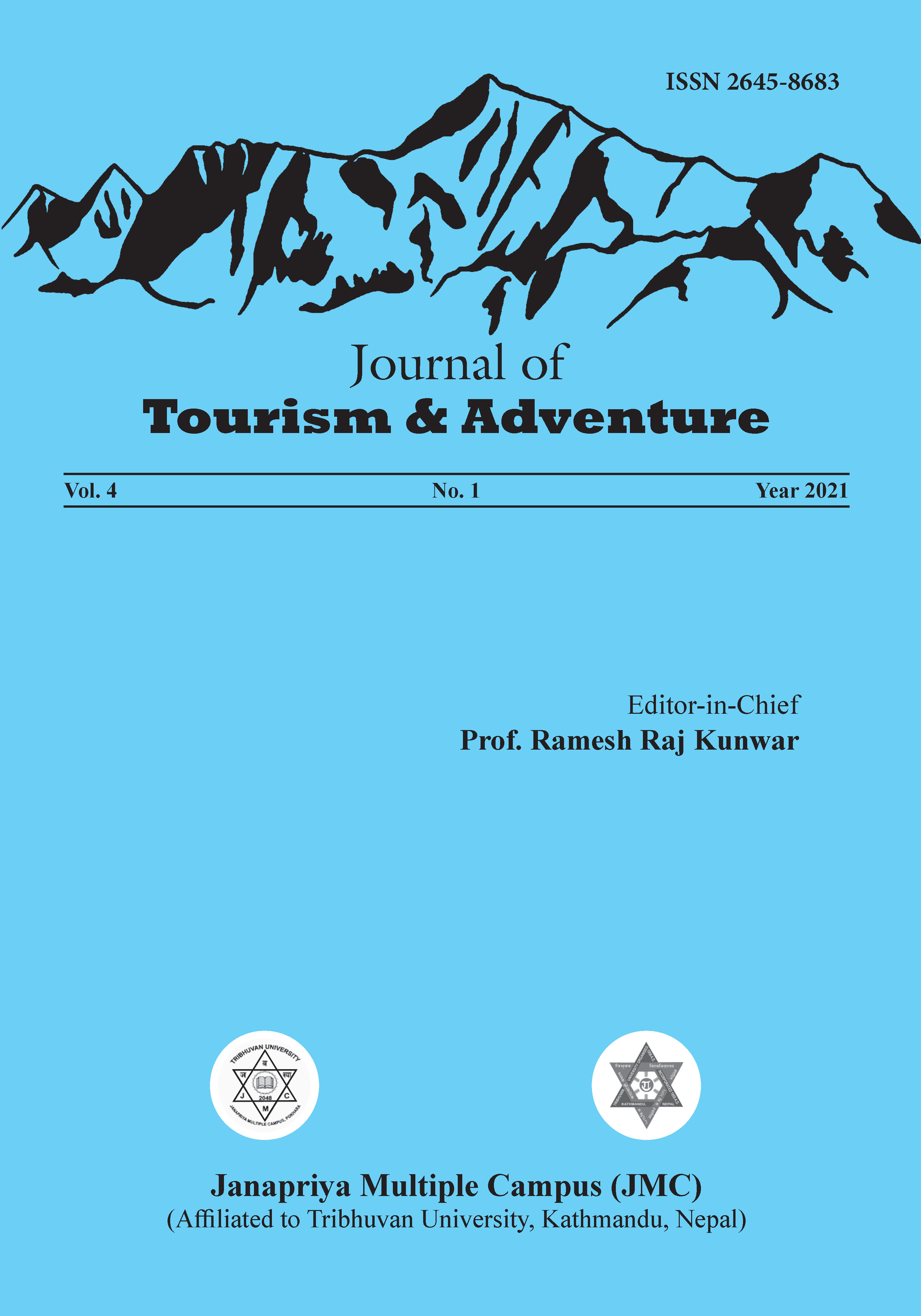Tourism and Community Perception: Quest of Sustainability from Happiness Paradigm
DOI:
https://doi.org/10.3126/jota.v4i1.40635Keywords:
Sustainability, happiness, perception, phenotype, genotypeAbstract
Change is normally phenotypic and influenced by external environment however transformation is genotypic and irreversible which mostly comes from within. Social change and transformation might also be triggered by external stimulus that may be intentional or accidental. Tourism has emerged globally as one of the powerful external but intentional agents of modern society for socio-economic transformation. Namche Bazar, the gateway to Mt. Everest, experienced tremendous socio-economic transformation (genotypic) due to tourism otherwise it would simply be a seasonal resting place for Sherpa shepherds and nomads. The dichotomy of discourses on tourism lies on perspectives: tourism as a symbol of modern society or postmodernity versus tourism as a vehicle of imperialism. The former view depicts tourism as an agent of economic prosperity whereas the later claims that tourism consumes and despoils destinations’ image and essence. The imperialistic discourse on tourism is entirely built on negative hypothesis. In tourism, phenotypic impact is rather superficial and can be restored if perceived negatively unlike genotypic. Amid these positive and negative propositions, a third paradigm emerged with sustainability variant that hooked up the two juxtaposed hypotheses as an alternative model of mass tourism. It portrayed tourism as a double-edged dagger that insists on efficient and effective manipulation of tourism for positive implications. The ‘sustainable tourism’ – a buzzword among tourism academia - stands in favor of planned, managed, controlled and responsible tourism. However, the crux of sustainable tourism lies in the quantification and measurement of sustainability. A sustainability premise of a stakeholder at the destination might be unsustainable for the other as like of economists and environmentalists for example. The incongruity perspectives have troubled the tourism academia to quantify, measure and analyze the indicators of sustainable tourism from unanimous parameters. This study is, therefore, an attempt to analyze the sustainability of a tourism destination via happiness (hedonic as well as eudaemonic) parameters of the community people, one of the main stakeholders in the destination and yet do not directly thrive on tourism business. The paper is directed by a thematic proposition ‘the more the happiness level of stakeholders, the better will be the sustainability situation of the destination’.
Downloads
Downloads
Published
How to Cite
Issue
Section
License
Authors retain the copyright of their articles.




